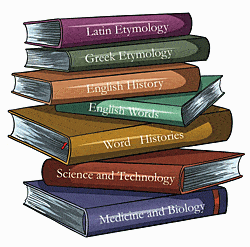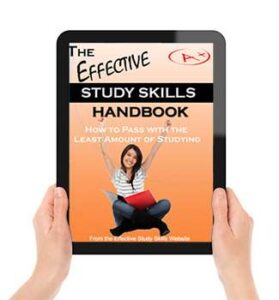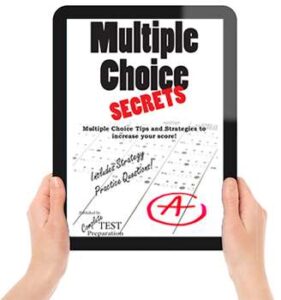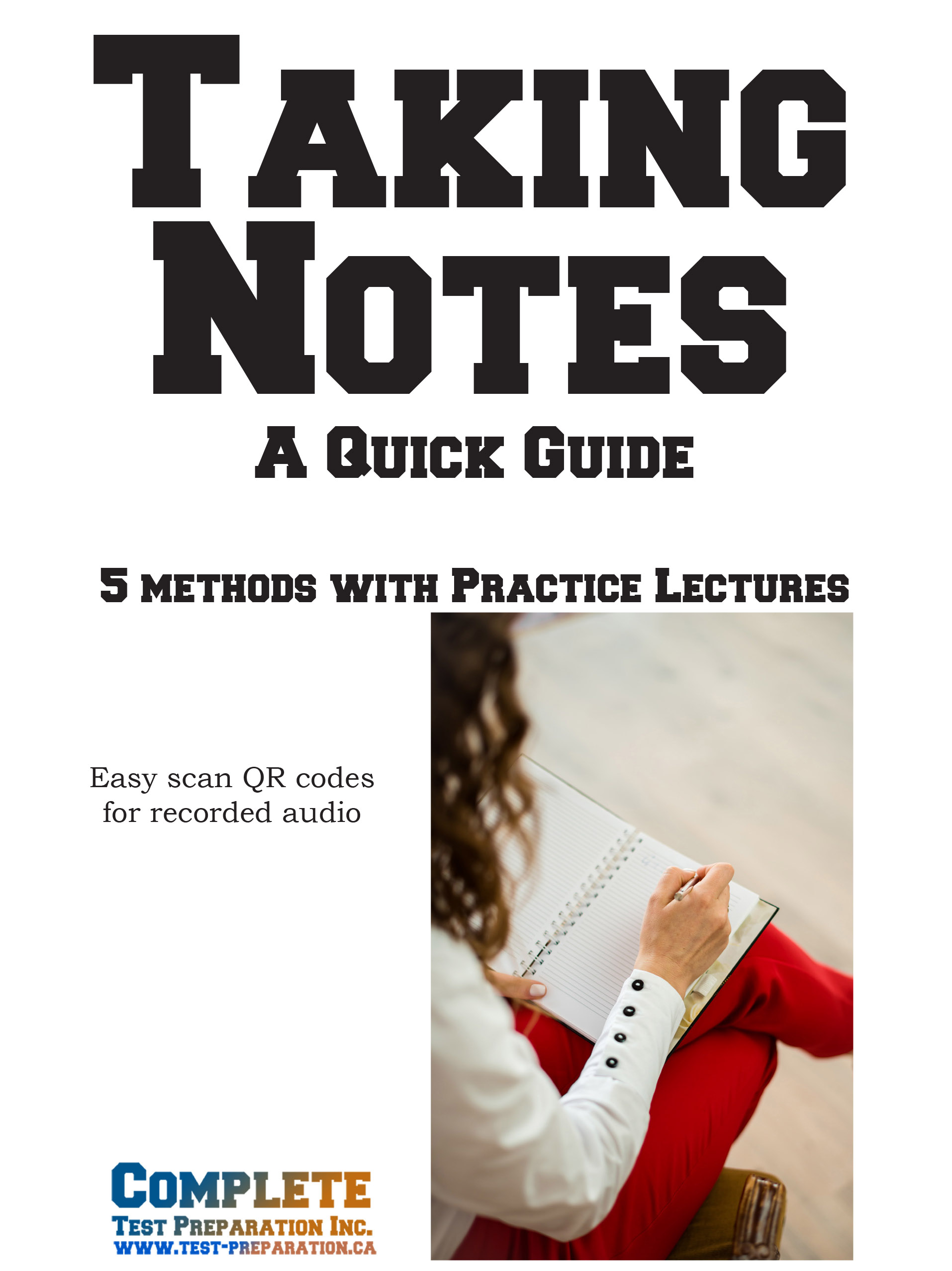
How to Prepare for Vocabulary Tests
- Posted by Brian Stocker MA
- Date December 5, 2006
- Comments 3 comments
Vocabulary tests become increasingly discouraging when you think of the enormous number of words that might come up in the exam. As the exam date draws near, your anxiety will grow because you know that no matter how many words you memorize, chances are, you will still remember so few. Here are some tips which you can use to hurdle the big words that may come up in your exam without having to open the dictionary and memorize all the words known to man.
Most College Entrance Exams and High School tests such as the HSPT and Nelson Denny, have vocabulary components.
Build up and tear apart the big words. Big words, like many other things in the universe, are composed of small parts. Some words are made up of many other words. A man who lifts weights for example, is a weightlifter. Words are also made up of word parts called prefixes, suffixes and roots. Often times, we can see the relationship of different words through these parts. A person who is skilled with both hands is an ambidextrous. A word with double meaning is ambiguous. A person with two conflicting emotions is ambivalent. Two words with synonymous meanings would often have the same roots, or what we know as basic words. Bio, a root word derived from Latin is used in words like biography meaning to write about a person’s life, and biology meaning the study of living organisms.
Audio Version of this Post
Words with double meanings.
Did you know that the word Husband not only means a married man but also thrift or frugality? Sometimes, words have double meanings. The dictionary meaning or the denotation of a word is sometimes different from the way we use it or its connotation. When you first look at the choices, see what has the closest meaning or the closest relationship with the given word and that might just be the meaning.
Read widely, read deeply and read daily.
The best way to expand your vocabulary is to familiarize yourself with as many words as possible through reading. By reading, you are able to remember words in a proper context and thus, remember its meaning or at the very least, its use. Reading widely would help you get acquainted with words you may never use every day. Here is a very detailed review of learning vocabulary by reading.
Remember.
When you read and encounter interesting words that you want to master, the best way to remember them is to look up the meaning in the dictionary and list it down. Keep a list of the words you want to remember and always read it on your free time. To prepare for an exam, it may also help to create flash cards of the words you expect will come up in the exam. Use different memory tricks like word association or use of context to remember the words.
Always remember that big words are easy to understand when the small parts are torn apart, and that words may have several other meanings aside from the one you already know. The best way to improve your vocabulary is always by reading and the best way to remember is by taking notes. When you realize that even big words are not so big that they cannot be hurdled, vocabulary tests becomes less frightening and may even be fun.
Tips for Learning Vocabulary
Here are suggested effective ways to help you improve your vocabulary
Be Committed To Learning New Words. To improve your vocabulary you need to make a commitment to learn new words. Commit to learning at least a word or two a day. You can also get new words by reading books, poems, stories, plays and magazines. Expose yourself to more language to increase the number of new words that you learn.
Read everything you can get your hands on. However, if you are studying for a test with a vocabulary section, the ‘reading approach’ isn’t practical.
Memorize lists. Here are some tips that will make memorization easier.
Learn Practical Vocabulary. As much as possible, learn vocabulary that is associated with what you do and that you can use regularly. For example learn words related to your profession or hobby. Learn as much vocabulary as you can in your favorite subjects.
Use New Words Frequently. As soon as you learn a new word start using it and do so frequently. Repeat it when you are alone and try to use the word as often as you can with people you talk to. You can also use flashcards to practice new words that you learn.
Learn How To Use Word Right. If you don’t understand the proper usage, look it up and make sure you have it right.
Use a Dictionary. When reading textbooks, novels or assigned readings, keep the dictionary nearby. As soon as you come across a new word, check for its meaning. If you cannot do so immediately then you should write it down and check it as soon as it is possible. This will help you understand what the word means and exactly how best to use it. You can then begin to use the words immediately.
Learn Word Roots. English words are usually derived from suffixes, prefixes and roots, which come from Latin, French or Greek. Learning the root or origin of a word helps you easily understand the meaning of the word that is derived and other words that are derived from the root.
This is a great two-for-one strategy. Most prefixes, suffixes, roots and stems are used in 2, 3 or 4 or more words, so if you know the root, prefix or suffix, you can guess the meaning of many words.
Use Flash Cards. Flash cards are one of the best ways to memorize things. They can be used anywhere and anytime, so you can make use of odd free moments waiting for the bus or waiting in line. Make your own or buy commercially prepared flash cards, and keep them with you all the time. More on Using Flash Cards.
Make word lists. Learning vocabulary, and learning many things, requires repetition. Keep a new words journal in a separate section or separate notebook. Add any words that you look up in the dictionary, as well as from word lists. Review your word lists regularly.
Photocopying or printing off word lists from the Internet or handouts is not the same. Actually writing out the word and a few notes on the definition is an important process for imprinting the word in you brain. Writing out the word and definition in your New Word Journal, forces you to concentrate and focus on the new word. Hitting PRINT or pushing the button on the photocopier doesn’t do the same thing.
Study Group or Study Partner. Learning in a group or with a partner helps to speed up the learning process and cuts down the amount of time. Have group members or your study partner quiz and drill you and then switch. More on Study Groups
Read regularly Reading books, newspapers, magazines and other written material can help expose you to new words and increase your vocabulary.
Keep a vocabulary journal Write down new words you come across and their definitions. Try to use these words in sentences to reinforce their meaning.
Play word games Scrabble, Boggle, crossword puzzles and other word games can be fun ways to expand your vocabulary.
Take online quizzes There are many online quizzes and tests available that can help you assess your vocabulary and learn new words.
Watch educational programs Educational programs, such as documentaries and educational shows, can introduce you to new words and increase your general knowledge.
Use a thesaurus A thesaurus is a great tool for finding synonyms and antonyms for words. This can help you expand your vocabulary and increase your understanding of words.
Practice using new words Try to incorporate new words into your daily conversation and writing to help reinforce their meaning and usage.

Anagram the Heck out of Vocabulary!
Often, I mix the first letters up to make an anagram. In one of my English classes, everyone had to build his or her own vocabulary list throughout the quarter, then we were tested on them. Since everyone had different words, we had to write the words, sentences, definitions, and grammatical skills for ten words on the quiz. I learned the definitions and English pieces, then created expressions to remember the words. The terms formed “A PINEAPPLE WHEN.”
It is not a creative process; all I had to do was type the first letters along with “anagram” into a search engine. This helped me so much because I just had to keep in mind the weird sentence or word before I really showed what I knew. I forgot nothing, and I earned every point on the test.
This does not just work with lists and definitions, but also vocabulary. In biology, I had to remember levels, stages, and categories of organisms, as well as processes and anatomy. I would forget one in one of the sequences and create an acronym or anagram. For example, Mitosis was in the Middle and Anaphase was After.
Acronym THOOV
When I have to remember a list in a specific order, I struggle the most. I grasp concepts and processes more easily. Consequently, I decide to create an acronym. Acronyms are better when there are uncommon letters that would be in more than two words. For example, in my linear physics class, we had to memorize the levels of the electromagnetic spectrum, so some of my peers and I came up with words to represent the levels (GXUVIMR became “Gross Xylophones Understand Violins In My Room”). We showed up to class mumbling that to ourselves. Needless to say, we aced the quiz!
Acronyms and anagrams are behind the scenes and underrated, but both make studying more fun and easier. Instead of figuring out physics, I figure out a word with “Y” in it, and the internet could always do that instead. With these, it does not even feel like I would be graded on memorization or retention anymore. They work. I did learn physics, but I did not hurt myself testing.
Improving Vocabulary Tutorials and Practice
Vocabulary.com (Huge selection of word lists)
Academic Word List (Over 3000 Academic words)
More information about Vocabulary from Wikipedia.

Common Mistakes on a Vocabulary Test
Incorrect Usage. One common mistake is using a word incorrectly or choosing a word with similar spelling or pronunciation. Read the instructions and the choices to select the correct word that fits the context. More on How to Take a Test
Incorrect Spelling. Pay attention to spelling, especially tricky or irregular spellings. Double-check your answers for spelling mistakes.
Confusing synonyms and antonyms. Words that may appear similar can have different meanings or opposite meanings. Synonyms are the SAME meaning, antonyms are the opposite.
Context Counts. Look for clues in the sentence or passage that give the meaning of a word. Some words may have different meanings depending on the context. Avoid overgeneralizing or oversimplifying the meanings of words.
Practice for your Test
Practice for your Test
Medical HESI A2 HOAE PSB
NLN PAX
High School
CAAT
CHSPE
Nelson Denny
Law Enforcement
Correctional Officer
SSPO Sigma
APCAT
BC Police
How to Study

… without endless hours of cramming
… without the need for tutoring
… and without sacrificing the things that matter to you!
Multiple Choice Secrets!

How to Take Notes
Learn 5 Note Taking Methods – With Full Explanation and Examples!
Taking notes is an essential academic skill and you will be doing a LOT!
Learn More and Start Practicing
Updated: Saturday, January 3rd, 2026
Tag:vocabulary tests
You may also like
The Canadian Red Seal Roadmap: Your Path to Certification
This roadmap outlines the typical journey from your first entrance exam to becoming a nationally recognized Red Seal Journeyperson.
English Language Tests for Canadian Citizenship
English Language Test is an assessment that measures your English proficiency and is a required component in the Canadian citizenship application process. The purpose is to make sure you have adequate knowledge and fluency in English to communicate and integrate …
Map Reading Practice for CritiCall, Firefighter, and Police Exams (Canada)
Does the map reading section of your upcoming Police Dispatch or Firefighter exam have you feeling lost? You aren’t alone. Spatial orientation and map reading questions are among the most intimidating parts of emergency service entrance exams. Why? Because in …


3 Comments
Probably the best way to increase your vocabulary is reading – BUT this is a longer term strategy – over the course of several months, if you read a lot, you will increase your vocabulary.
If you are studying for a test like the Nelson Denny, HSPT where you have to increase your vocabulary in a short period of time, just “reading more” isn’t going to help. So – the next best strategy is memorizing word lists – shoot for 25 new words a day.
Husband now also means a man married to a man.
Quite so! thanks!